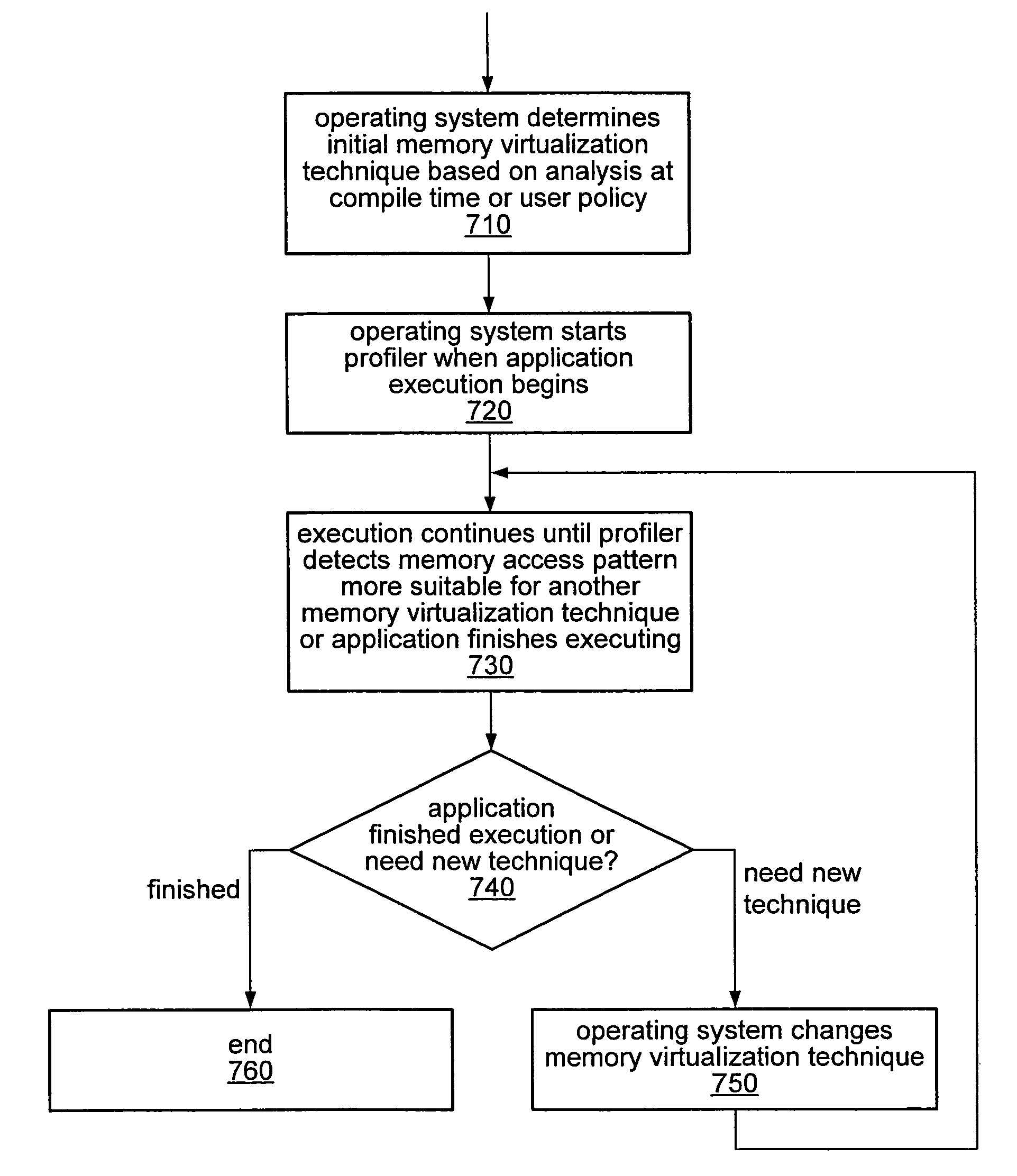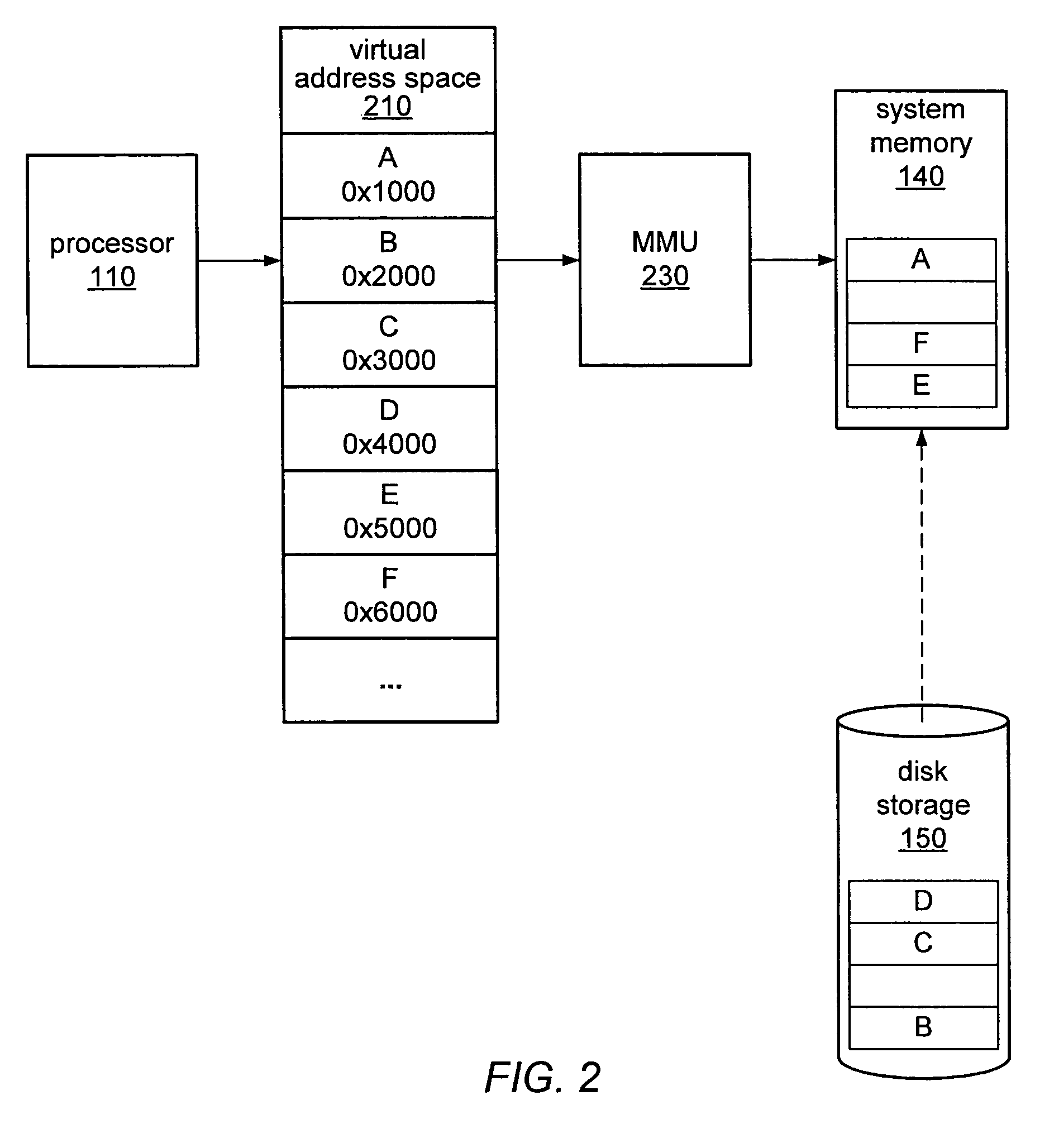Hybrid techniques for memory virtualization in a computer system
a computer system and memory virtualization technology, applied in the field of hybrid techniques for memory virtualization in the computer system, can solve the problems of poor performance, higher performance, and application cannot directly address physical memory
- Summary
- Abstract
- Description
- Claims
- Application Information
AI Technical Summary
Benefits of technology
Problems solved by technology
Method used
Image
Examples
Embodiment Construction
Introduction
[0025]Many modern computer systems have adopted a hierarchical memory system, typically involving at least two or three layers. An example of such a configuration is illustrated by FIG. 1. In this example, a microprocessor 110 may be attached to a level 1 (L1) cache 120 and then to a level 2 (L2) cache 130. The L1 cache 120 may be fabricated on the same semiconductor device as processor 110, and so may provide very fast data access for processor 110, while the L2 cache 130 may or may not be a separate semiconductor storage device and may have longer access times than L1 cache 120. The next device in the memory hierarchy, in this example, is random access memory (RAM) 140. This may also be referred to by a variety of other names, such as physical memory, system memory, main memory, or internal storage. RAM 140 may be implemented as a semiconductor device typically distinct from microprocessor 110, but may be significantly slower than L1 cache 120 and L2 cache 130. RAM 140...
PUM
 Login to View More
Login to View More Abstract
Description
Claims
Application Information
 Login to View More
Login to View More - R&D
- Intellectual Property
- Life Sciences
- Materials
- Tech Scout
- Unparalleled Data Quality
- Higher Quality Content
- 60% Fewer Hallucinations
Browse by: Latest US Patents, China's latest patents, Technical Efficacy Thesaurus, Application Domain, Technology Topic, Popular Technical Reports.
© 2025 PatSnap. All rights reserved.Legal|Privacy policy|Modern Slavery Act Transparency Statement|Sitemap|About US| Contact US: help@patsnap.com



